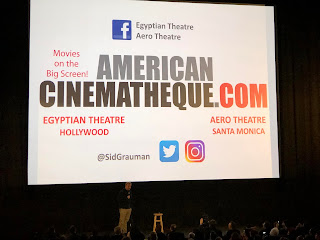TCM in December: Christmas Movies
It's the last day of November, and that means it's time for my annual guide to Christmas movies on this year's Turner Classic Movies schedule!
Starting on December 1st, TCM will be showcasing Christmas movies on Sundays, with an extensive daytime lineup along with a "double feature" in prime time.
Additional films are scattered throughout the month, with many films airing from December 22nd straight through Christmas Day.
Please click on any link below for an extended review. In the case of several films which will be shown multiple times, reviews are only linked the first time the title is mentioned.
 December 1st:
December 1st:LADY IN THE LAKE (1947)
LITTLE WOMEN (1949)
HOLIDAY AFFAIR (1949)
THE SHOP AROUND THE CORNER (1940)
A CHRISTMAS CAROL (1951)
THE BISHOP'S WIFE (1947)
December 2nd:
KING OF KINGS (1917 and 1961 versions)
BEN-HUR (1925 and 1959 versions)
 December 8th:
December 8th:A CHRISTMAS CAROL (1938)
THE MAN WHO CAME TO DINNER (1942)
O. HENRY'S FULL HOUSE (1952)
3 GODFATHERS (1948)
IT HAPPENED ON 5TH AVENUE (1947)
THE HOLLY AND THE IVY (1952)
December 11th:
BELL BOOK AND CANDLE (1958)
December 15th:
LADY ON A TRAIN (1945)
IT HAPPENED ON 5TH AVENUE (1947)
BELL BOOK AND CANDLE (1958)
IN THE GOOD OLD SUMMERTIME (1949)
HOLIDAY AFFAIR (1949)
REMEMBER THE NIGHT (1940)
December 16th:
LITTLE WOMEN (1933 and 1949 versions)
December 22nd:
A NIGHT AT THE MOVIES: MERRY CHRISTMAS! (2011)
KING OF KINGS (1961)
THE GREATEST STORY EVER TOLD (1965)
GOING MY WAY (1944)
THE BELLS OF ST. MARY'S (1945)
BEN-HUR: A TALE OF THE CHRIST (1925)
MERRY CHRISTMAS, MR. LAWRENCE (1983)
December 23rd:
THE SHOP AROUND THE CORNER (1940)
IN THE GOOD OLD SUMMERTIME (1949)
BACHELOR MOTHER (1939)
BUNDLE OF JOY (1956)
THREE GODFATHERS (1936)
3 GODFATHERS (1949)
 December 24th:
December 24th:BEYOND TOMORROW (1940)
FITZWILLY (1967)
PERIOD OF ADJUSTMENT (1962)
IN THE GOOD OLD SUMMERTIME (1949)
THE MAN WHO CAME TO DINNER (1942)
IT HAPPENED ON 5TH AVENUE (1947)
HOLIDAY AFFAIR (1949)
THE BISHOP'S WIFE (1947)
MEET ME IN ST. LOUIS (1944)
A CHRISTMAS CAROL (1938)
MEET JOHN DOE (1941)
ALL MINE TO GIVE (1957)
THE GREAT RUPERT (1950)
 December 25th:
December 25th:BABES IN TOYLAND (1934)
TENTH AVENUE ANGEL (1948)
LITTLE WOMEN (1933)
O. HENRY'S FULL HOUSE (1952)
LOVE FINDS ANDY HARDY (1938)
THE SHOP AROUND THE CORNER (1940)
SUSAN SLEPT HERE (1954)
THE THIN MAN (1934)
Christmas titles shown on TCM vary a bit from year to year for a variety of reasons. Among the films which haven't turned up on the TCM schedule this Christmas season are HOLIDAY INN (1942), CHRISTMAS IN CONNECTICUT (1945), NEVER SAY GOODBYE (1946), COVER UP (1949), TRAIL OF ROBIN HOOD (1950), and DESK SET (1957), along with WHITE CHRISTMAS (1954), which I don't recall ever being shown on TCM. I list these films simply to provide additional ideas for home viewing.
 This year Noir Alley will be debuting the marvelous REPEAT PERFORMANCE (1947) on December 28th and 29th. This magical film has a New Year's Eve setting which makes it perfect for this time of year. Joan Leslie, Louis Hayward, Richard Basehart, and Tom Conway head an excellent cast.
This year Noir Alley will be debuting the marvelous REPEAT PERFORMANCE (1947) on December 28th and 29th. This magical film has a New Year's Eve setting which makes it perfect for this time of year. Joan Leslie, Louis Hayward, Richard Basehart, and Tom Conway head an excellent cast.As is often the case, New Year's Eve on TCM will be spent with the THIN MAN series and the THAT'S ENTERTAINMENT! musical compilation films.
For more information on TCM's December 2019 schedule, please also visit the online TCM schedule, along with my posts TCM in December: Highlights, TCM Star of the Month: Joan Blondell, and Quick Preview of TCM in December.
Merry Christmas!

















































